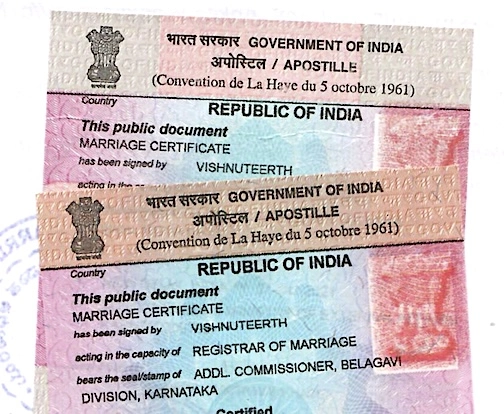As of January 11, 2024, Canada has officially joined the 1961 Hague Convention Abolishing the Requirement of Legalization of Foreign Public Documents, commonly known as the Apostille Convention.
The Hague Convention simplifies the process of document legalization for use in more than 120 countries that are also members of the convention.
Did you know? The apostille system only applies to documents issued on or after January 11, 2024.
What is the Apostille Convention?
The Apostille Convention was established and signed in the Hague, Netherlands. It was signed on 5 October 1961. It was done to simplify the process of using public documents internationally.
Before this convention, documents needed to go through a lengthy process of legalization including embassy attestation by the consulate or embassy of the country where the document would be used. This process was not only time-consuming but also expensive.
That’s why, it is called The Convention of 5 October 1961 Abolishing the Requirement of Legalisation for Foreign Public Documents,
The Apostille Convention eliminates the need for embassy legalization by introducing a standardized certificate known as an apostille. This is granted by the host’s country where the document was issued. For example, if you have documents issued in India, you can use them abroad in any Hague-signatory country by getting them apostilled. In India, the Ministry of External Affairs (MEA) is in charge of granting an apostille.
An apostille will act as proof of confirmation that shows the authenticity of a document. This includes the signature, the capacity of the person who signed it, and the identity of the seal or stamp on the document. Once a document has an apostille, it is recognized as valid in all member countries of the Hague Convention, without needing further legalization or embassy attestation.
Canada’s Entry into the Apostille Convention
With Canada’s entry into the Apostille Convention on January 11, 2024, the process for Canadians to use their public documents in other member countries has become much simpler. Canadians no longer need to go through the tiring process of getting their documents legalized by the consular office of the destination country. Instead, they can now obtain an apostille, which will be recognised in all other member countries.
Indians on the other hand will only need an apostille to use their documents in Canada. There won’t be any need for embassy attestation by the Canadian Consulate for document legalisation. Although apostille will be valid in Canada, there could be many instances where you will need Canadian embassy attestation. This depends on your visa requirements and instructions given by Canadian authorities.
Changes to Authentication Services in Canada
Canada submitted its instrument of accession on 12 May 2023 and the apostille came into effect on January 11, 2024. For Canadians and Indians who own Canadian documents, there has been a huge change in the verification process. As per sources, the below information is conveyed.
- Up until January 10, 2024: Global Affairs Canada was responsible for issuing authentication certificates for documents issued or notarized anywhere in Canada.
- From January 11, 2024, onwards: The responsibility for issuing apostilles for documents issued or notarized in certain provinces has been transferred to the competent provincial authorities. Global Affairs Canada will continue to issue apostilles for documents issued by the Government of Canada and for documents from specific provinces and territories.
Canadians and Indians who own documents that were issued in Canada, need to be aware of these changes so that they can ensure their documents are properly authenticated before submitting them for use abroad.
What About Documents Issued Before January 11, 2024?
If you have a document that was issued before January 11, 2024, it will still need to go through the full legalization process. This means even if you are looking for document legalization after Jan 11, 2024, you’ll need embassy attestation. The apostille system is only applicable to documents issued on or after January 11, 2024.

